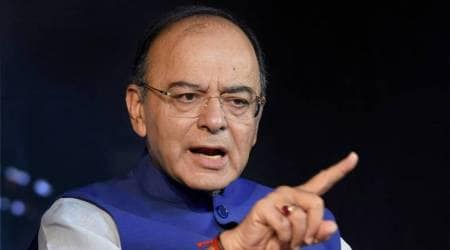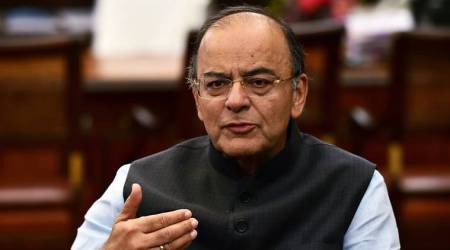 “The balance between privacy and transparency is a challenge,” said Jaitley. (File photo)
“The balance between privacy and transparency is a challenge,” said Jaitley. (File photo)
A week after the Supreme Court ruled that privacy is a fundamental right, Finance Minister Arun Jaitley said that privacy “comes in the way of accountability” and that achieving a balance “between privacy and transparency” was a challenge.
“The UPA government started Aadhaar without legislative backing. Addressing the Rajya Sabha on March 16, 2016, I had said that even though there is a judgement that says there is no right to privacy I presume a privacy right. The Supreme Court has used almost the same arguments to grant the right to privacy. But now privacy comes in the way of accountability,” said Jaitley.
“The balance between privacy and transparency is a challenge,” said Jaitley, while speaking at the first Charti Lal Goel Memorial Lecture on “New India – Politics with Transparency”.
Elaborating on his apprehensions, the Finance Minister said, “A bureaucrat may argue that disclosing jewellery holdings hurts his wife’s privacy or in revenue-related matters, a man spending Rs 1 crore could say how he spent it is his private business. The corrupt may thus get a leeway citing privacy concerns.”
West Bengal and Bihar Governor Keshari Nath Tripathi, who also addressed the gathering, called for introspection on whether criminals planning a crime or “anti-national elements” hatching a conspiracy in a closed room would be covered by the right to privacy.
Jaitley spoke at length on the need to bring transparency in electoral funding and how despite best efforts the system has failed to arrive at a foolproof way to prevent entry of criminals into politics.
“We are not talking about trade union leaders with cases against them, these are heinous offenders. In line with the increased focus on transparency, there is a need to look at electoral funding also. When I was Law Minister in the (A B) Vajpayee Cabinet, I brought a law and Pranab Mukherjee as standing committee chairman further finetuned it. People making political donations through cheques would get tax benefit. But people were apprehensive about openly flaunting their political colours. That is why it never caught on. Now we are working on the proposal for electoral bonds that I pitched for in this year’s Budget speech. The challenge here is to strike a balance between transparency and getting in clean money,” Jaitley said.
Tracing the culture of transparency from the time when filing election affidavits came as a surprise, to the age of the Right To Information Act, Jaitley said it is in line with court judgments where judges have made observations such as “sunlight is the best disinfectant”.
Calling himself a strong votary of changes in the Prevention of Corruption Act in the interest of better governance, Jaitley said the present law since it dates back to before economic liberalisation makes bureaucrats vulnerable. “Even a decision taken in all honesty without any financial transactions if proved at a later stage to have caused losses, can make the person liable for prosecution. Many retired bureaucrats have been thus harassed. Governance cannot happen if officers are scared to take decisions. Atmosphere of distrust is not good for governance,” Jaitley said.
In his speech, Tripathi spoke about Goel’s foresight in fearing that Parliament and state assemblies would end up becoming “centres of noise and chaos and not serious discussion”. Goel was Speaker of the Delhi Assembly and father of Union Sports Minister Vijay Goel.

